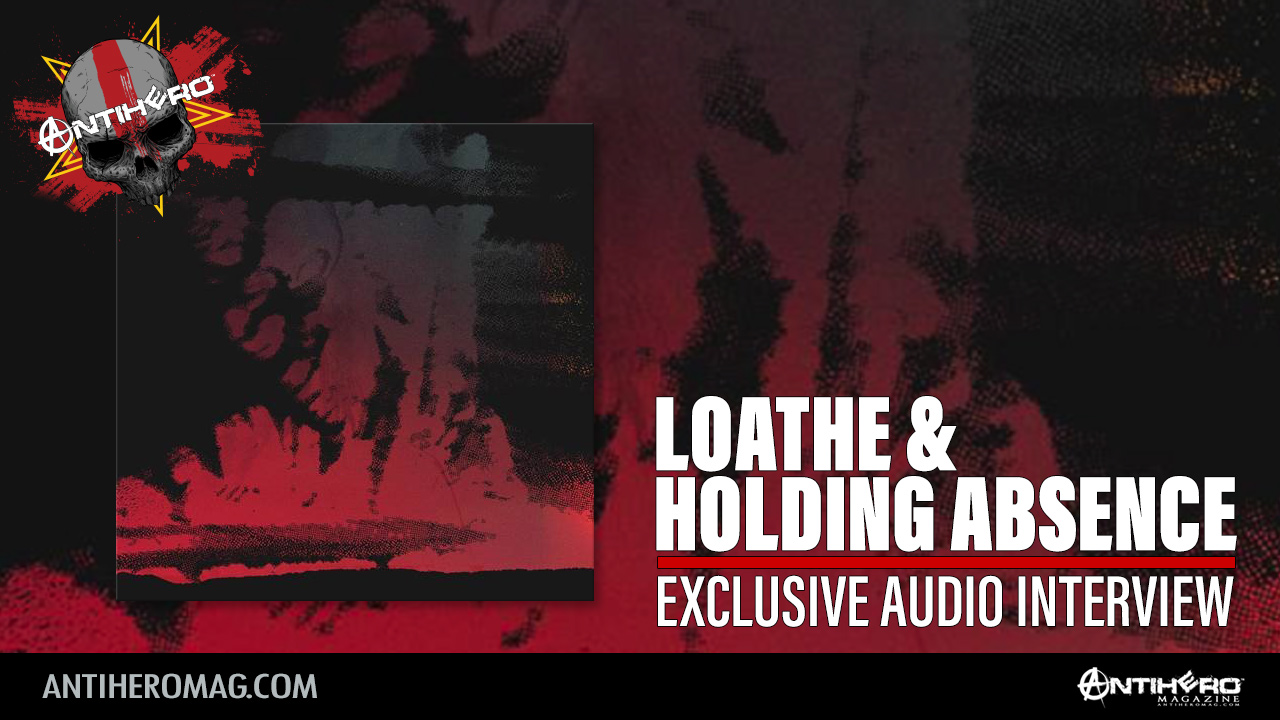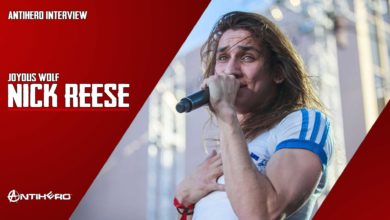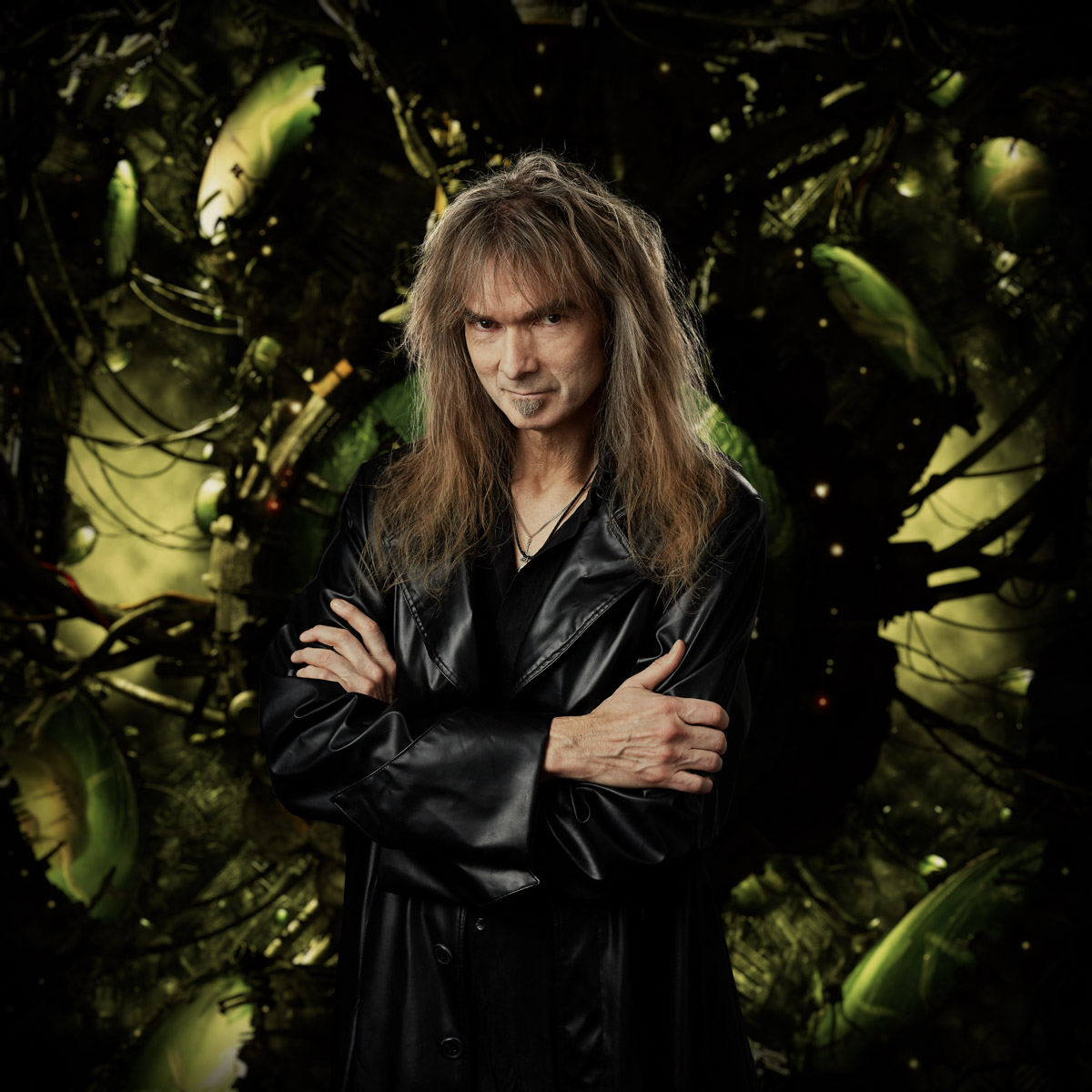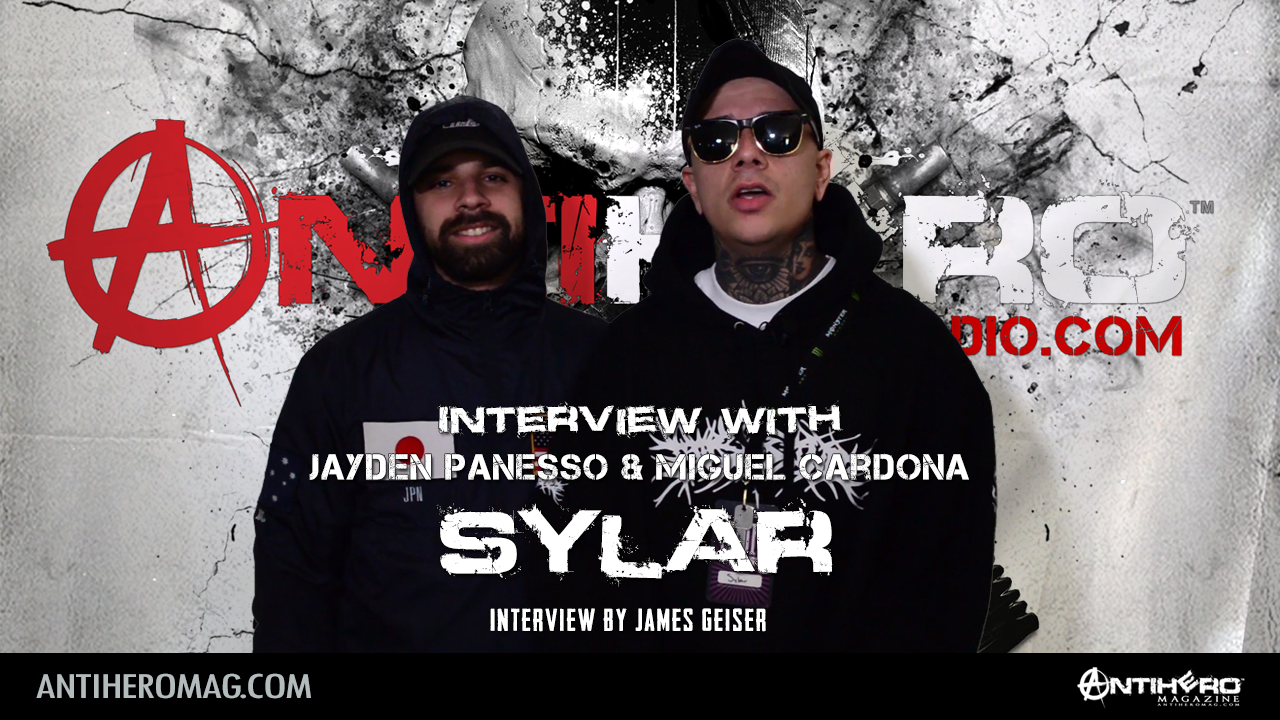Interview with Rasmus Bom Andersen of DIAMOND HEAD
Diamond Head are a band that have been around the musical block several times and back. Formed in 1976 in England, they are now into their 40th year of making heavy metal. Pioneers of the legendary NWOBHM musical movement, they have even been widely referenced as an influence on Thrash metal legends Metallica. Despite never achieving commercial success, the band has endured through an ever-changing and often difficult musical climate. Band members come and go, but a change of vocalists always polarises the opinion of fans. Ahead of their Bloodstock appearance, I had the opportunity of having a chat with vocalist Rasmus Anderson, in which he discussed the pros and cons of joining a band of legendary status. [separator style=”line” /]
Hailing from Denmark before you moved to the UK, were you actually familiar with Diamond Head and their musical legacy?
To be totally honest, I wasn’t at all. I hadn’t even heard the Metallica version of “Am I Evil.” I was into Metallica, but kind of skipped past their Garage Inc. album, and didn’t get into them until I heard the Black album. Then I listened to a lot of their big hits, etc. Just never came across the Diamond Head cover versions.
How does fronting a legendary band differ from previous bands that you have been in?
Well, it’s big! It’s a big difference in many aspects. The band is established. Diamond Head has a following and many loyal fans. It also brings a lot of pressure, as I must try to live up to the expectations of what the fans know from their first Diamond Head days. There is a lot of history and a priceless legacy that must be honored and respected. I just try my best to do that and hope that the fans accept me as the new front man of Diamond Head.
What was your first introduction to music – a song on the radio, first album owned, or first gig attended?
I remember listening to various genres of music in my early childhood, but the first time something just clicked in my head, was when I was driving to France with my parents. They put on Queen Greatest Hits and all of a sudden it just erupted out of my chest. My voice just started singing. I think I was about 15 at that time. We played the same album, and other Queen albums, for 24 hours straight while on the road and on that day I just thought, “This is pretty awesome. I think I’d like to do that.” Queen and [Freddie] Mercury were definitely the catalyst for my interest in music on a different level.
What was your input to the Diamond Head album – in terms of the already established songwriting and music creation process?
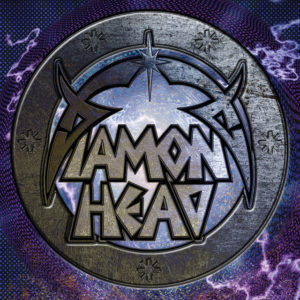 Very gratefully I’ve had quite a big input on this album. Diamond Head has done six albums before I joined so they have very good experience in making records. Brian has said in other interviews that me coming in with fresh ears and having listened to the entire back catalogue had given me a good feel for what makes “Diamond Head” so great, almost like a producer would do. Together as a band I tried to transfer that into this seventh album and bring the best of the Diamond Head qualities into this record. I do work as a producer outside of Diamond Head, but it wouldn’t have seemed right for the new face to come in and start calling the shots on the new album. That’s why I always said we should do this as a band first and foremost. I knew that the last two albums were done via the Internet and that just didn’t seem right to me as the Diamond Head way. This is an old school band that builds monstrous tracks and epic tunes from working together in a room. So I told Brian that if we were going to make a record, then we had to do it like in the old days. In a room, just the band, and let the tracks grow organically. You just can’t beat that kind of interaction in creating music. We had a good start, as Brian is always coming up with riffs and writing music, so he had a lot of material that he could send me. I carefully listened back to it all his riffs and instrumental pieces and chose the ones that I thought sounded like “THE” Diamond Head sound. I suggested that we should make a record that echoed the best parts from all the albums and especially Lighting to The Nations, Borrowed Time, and Canterbury. Ed called it the brief. It was sort of a checklist that had to be met in order to make the cut for the album. From there we took the riffs or full pieces of music to the studio and started crafting them as a band. The biggest input from me on this album is of course all the melodies and lyrics which I wrote. It was important that these also fitted with the brief of the Diamond Head brief. Besides that, I also composed the orchestral sections on “All The Reasons You Live” (Including the Japan bonus track) and “Silence.” I love composing and orchestrating, so enjoyed adding that touch to the album.
Very gratefully I’ve had quite a big input on this album. Diamond Head has done six albums before I joined so they have very good experience in making records. Brian has said in other interviews that me coming in with fresh ears and having listened to the entire back catalogue had given me a good feel for what makes “Diamond Head” so great, almost like a producer would do. Together as a band I tried to transfer that into this seventh album and bring the best of the Diamond Head qualities into this record. I do work as a producer outside of Diamond Head, but it wouldn’t have seemed right for the new face to come in and start calling the shots on the new album. That’s why I always said we should do this as a band first and foremost. I knew that the last two albums were done via the Internet and that just didn’t seem right to me as the Diamond Head way. This is an old school band that builds monstrous tracks and epic tunes from working together in a room. So I told Brian that if we were going to make a record, then we had to do it like in the old days. In a room, just the band, and let the tracks grow organically. You just can’t beat that kind of interaction in creating music. We had a good start, as Brian is always coming up with riffs and writing music, so he had a lot of material that he could send me. I carefully listened back to it all his riffs and instrumental pieces and chose the ones that I thought sounded like “THE” Diamond Head sound. I suggested that we should make a record that echoed the best parts from all the albums and especially Lighting to The Nations, Borrowed Time, and Canterbury. Ed called it the brief. It was sort of a checklist that had to be met in order to make the cut for the album. From there we took the riffs or full pieces of music to the studio and started crafting them as a band. The biggest input from me on this album is of course all the melodies and lyrics which I wrote. It was important that these also fitted with the brief of the Diamond Head brief. Besides that, I also composed the orchestral sections on “All The Reasons You Live” (Including the Japan bonus track) and “Silence.” I love composing and orchestrating, so enjoyed adding that touch to the album.
Since you joined the band, have you found that long-standing fans have embraced you, or has there been some noticeable resentment and negativity from them?
It’s been a mix. The hardcore Diamond Head fans have, to my great appreciation, seemingly embraced me and even called me the missing piece of the Diamond Head jigsaw, which I was very humbled by. There have been other situations of people saluting me with the middle finger during a gig, and a girl even snuck back stage at a festival and straight up slapped me in the face and shouted I had ruined Diamond Head for her. Needless to say I was not so impressed with their security at that festival. So it’s a mixed bag of positive and negative and you have to deal with it like all other things in life. You can’t please everyone and that’s how it is. I try to focus on the positive and as long as the majority of the fans are positive then I feel like I’m doing the Diamond Head legacy justice.
Did joining an already established band bring additional pressure and stress or are you generally good at dealing with pressure?
Yeah, there was some pressure. Thankfully, I tend to work the best under pressure. To me the biggest importance was to do the back catalogue and Diamond Head legacy justice, and therefore also the fans. They were my primary focus and it was imperative that they knew that I respected the songs and the legacy of Diamond Head.
What have been the pluses and minuses of working as a professional musician?
The music business is and has been a bad place for some time now, and that is definitely the biggest minus, but that’s a whole interview in itself. Being a musician is a hard lifestyle and very hard work to make ends meet. It’s a difficult career where you travel several miles with tons of expensive gear to perform and bear your soul, and sometimes to very little appreciation. That said, when it’s great like at Bloodstock or similar gigs, it’s the best thing in the world. The biggest plus is definitely getting to play and enjoy music with the people, both bands and fans alike. You get to meet awesome musicians on the road and also meet the most loyal of fans. The big festivals we’ve played this year put the plus in perspective. Everyone gathers for the appreciation of music on a whole other level. Everyone is happy and just having a good time with each other and listening to bands they love. Bloodstock definitely lives up the this and their name, as that festival is the modern times’ Woodstock, in my opinion. Granted with a lot blacker shades involved and more aggressive music, but nevertheless the spirit is the same.
You are on a desert island with only two albums, one by Diamond Head (not the latest one) and one by another artist. What would your choices be and why?
Would probably be Borrowed Time, and Telephantasm by Soundgarden
What are your hobbies and interests outside of music?
My life is pretty much surrounded by music, but I like technology, so I dabble in photography, film, and design. Also love going to the gym, and I train Kali and Silat martial arts when I have time.
There is a new bassist in the band, Dean. What has he brought to the band?
Dean is a great player. We’ve only had two gigs with him so far, but he has filled the slot very confidently. He is a good balance for the band, and him and Karl seem to really lock in as the rhythm section. So it’s all great and I look forward to the rest of the tour with him, and what might be next.
You have done many interviews, but if the roles were reversed who would you personally choose to interview? Why choose them and what would you ask them? Maybe a personal hero or inspiration?
I would probably choose to interview Chris Cornell just because he is in my opinion a fantastic songwriter and probably one of the best rock singers of all time. [separator style=”line” /]


